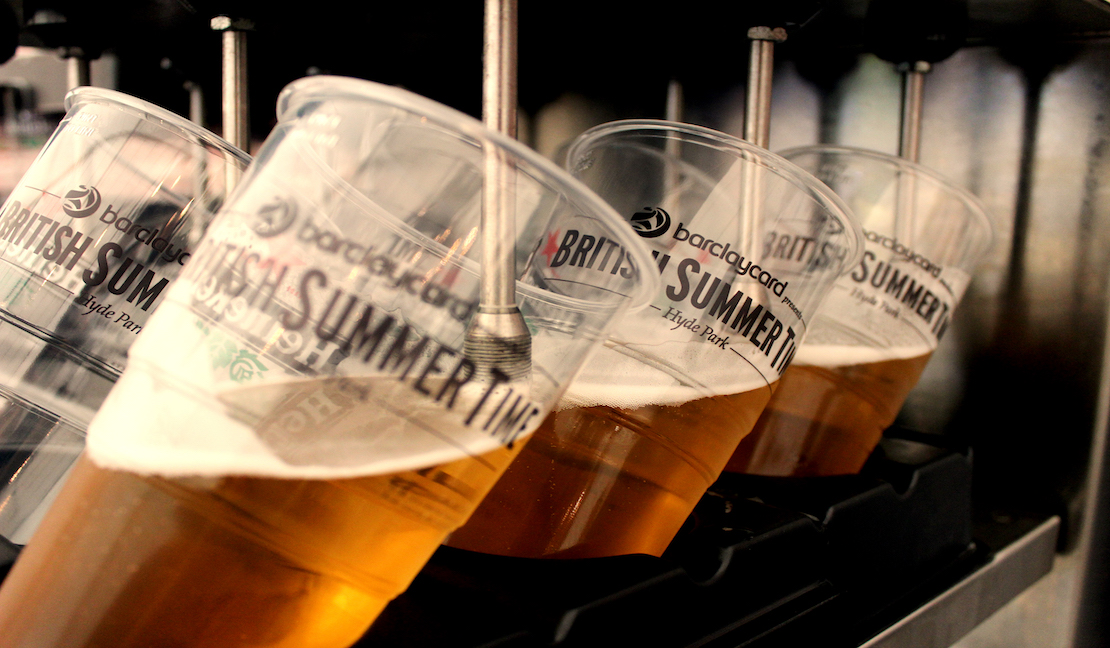It might run contrary to current popular opinion, but plastic is not always the devil when it comes to making your event as sustainable as possible.
These days there will be countless consumers who will question the morals of brands/event operators who peddle their wares in the much-maligned plastic cup. Epic documentaries faced by Sir David Attenborough have (rightly) raised public awareness of the issue of single-use plastic across society and pressured governments, supermarkets and brands into rethinking how plastic is used in our society.
However, in reality the answer isn’t as always easy as simply replacing plastic with more PR-friendly alternatives.
PLA materials (often attractively named “Bio-plastics” derived from vegetable matter) certainly appear to be an attractive quick fix, as do the ‘paper’ cups used to great effect at Glastonbury festival each year. These alternatives offer consumers a guilt-free way of consuming their drinks but conversely can be as bad (and sometimes worse), than their plastic cousins.
Bio-plastics for example cannot be recycled as easily, nor as universally, as their plastic counterparts. Yes, they do decompose in the right conditions, but at time of writing there is only one such site in the whole of London which can do this, and all other destinations end up having to incinerate anything that arrives at their door. Worse yet, it only takes one bio-plastic cup to enter a plastic recycling stream and the whole system becomes contaminated and unrecyclable. Equally, paper cups are sneakily lined with a thin film of plastic which prevents them soaking through. While Glastonbury festival can martial large armies of volunteers to strip this out and assign each part to the relevant recycling facilities, the vast majority of events stand no chance of having a similar level of dedication which results in the cups heading to landfill anyway.
The evil plastic cup, on the other hand, is widely and easily recycled, negating the problems caused by the alternatives. Furthermore, if recycled plastic is used for supply of the cups, then CO2 emissions from the manufacturing process could drop by as much as 80%.

Ultimately the picture is more complex than it first seems. It is vitally important to be aware of the full circle of each product distributed at events, including local waste management systems and the individual abilities of local authorities. If they’re able to process bio-plastic appropriately – this could be a great way to go. If not, recycled plastic could well be fantastic for your environmental impact.